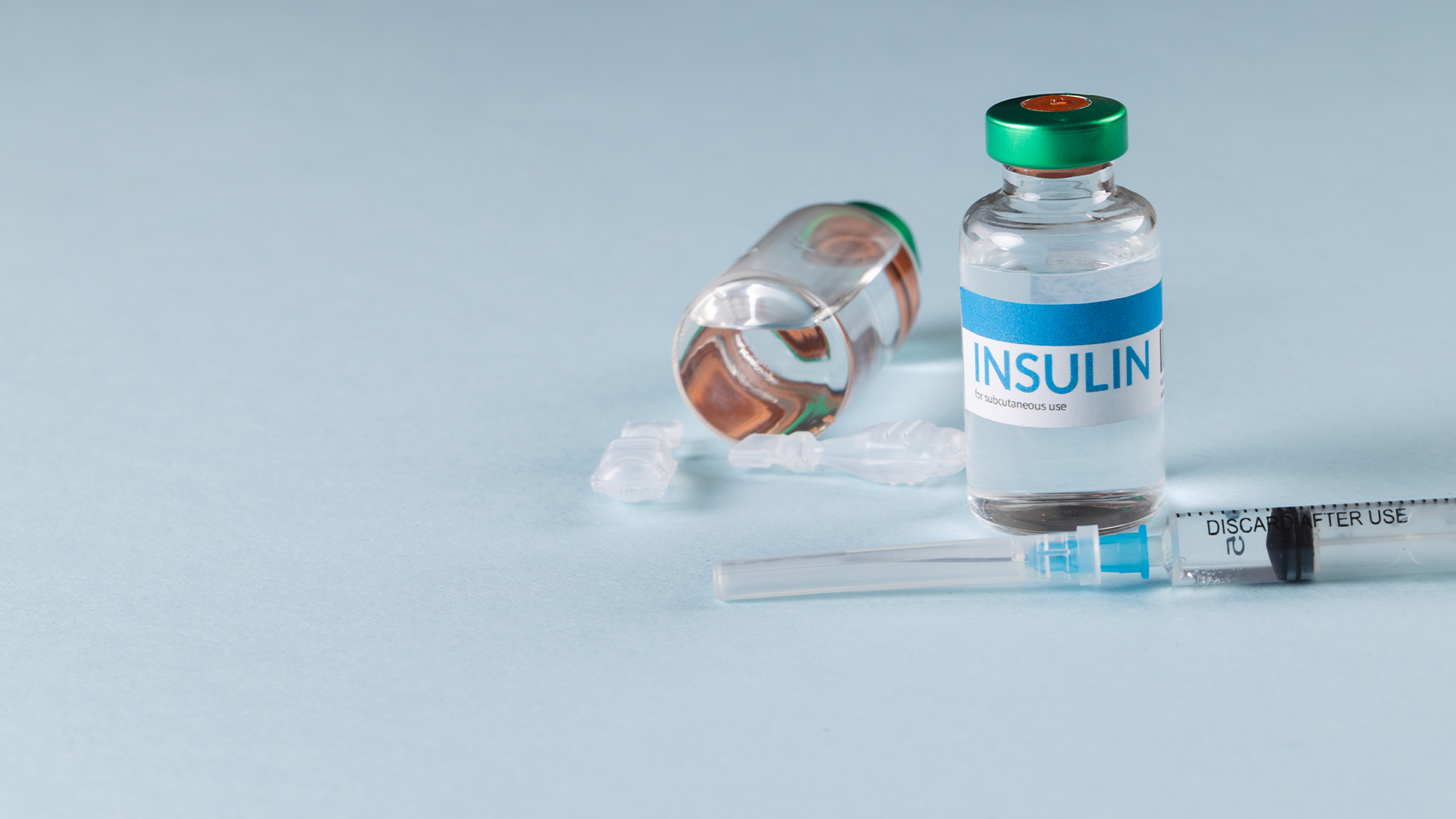The Link Between Insulin Resistance and Premature Aging
Insulin resistance is more than just a precursor to type 2 diabetes – it’s a condition that can accelerate the aging process and negatively affect your skin, energy levels, and overall health.

We’ve all heard about insulin in the context of diabetes and blood sugar control, but did you know that insulin resistance – a condition where the body becomes less responsive to insulin – is also closely linked to premature aging? That’s right – insulin resistance can accelerate the aging process, affecting everything from your skin and metabolism to your overall health.
In this article, we’ll explore what insulin resistance is, how it contributes to premature aging, and what you can do to manage your insulin levels to stay youthful and healthy for longer.
What Is Insulin Resistance?
Insulin is a hormone produced by the pancreas that helps regulate blood sugar levels by allowing glucose (sugar) to enter cells, where it’s used for energy. Insulin resistance occurs when the body’s cells become less responsive to insulin, meaning they don’t absorb glucose as effectively. As a result, the body produces more insulin to try to keep blood sugar levels in check.
Over time, this leads to high blood sugar levels, which can cause a variety of health issues, including weight gain, fatigue, and increased risk for type 2 diabetes. But insulin resistance doesn’t just affect blood sugar – it can also have a significant impact on the aging process.
How Insulin Resistance Contributes to Premature Aging
1. Accelerated Skin Aging and Wrinkles
One of the most visible effects of insulin resistance is on the skin. High blood sugar levels can cause glycation, a process where excess sugar in the bloodstream binds to collagen and elastin fibers in the skin. Collagen and elastin are the proteins responsible for keeping the skin firm, elastic, and youthful. When these proteins are damaged by glycation, the skin becomes weaker, less elastic, and more prone to wrinkles.
Insulin resistance can also lead to increased inflammation, which contributes to the breakdown of collagen and accelerates the aging of the skin. As a result, people with insulin resistance often experience dull, sagging skin and the appearance of fine lines and wrinkles earlier than those with normal insulin sensitivity.
Real Example: Research has shown that people with type 2 diabetes (which is often a result of insulin resistance) tend to have more wrinkles and sagging skin compared to individuals with healthy blood sugar levels. A study published in *The Journal of Clinical Endocrinology & Metabolism* found that people with diabetes showed more signs of skin aging, including a decrease in skin elasticity and an increase in wrinkle formation.
2. Fatigue and Decreased Energy Levels
Chronic insulin resistance can lead to fatigue and low energy, which are common signs of premature aging. When the body isn’t able to use glucose efficiently for energy, it leads to fluctuating blood sugar levels, which can leave you feeling sluggish and drained. This low energy can make it harder to stay active, exercise, or even enjoy daily tasks, contributing to a sedentary lifestyle – another factor that accelerates aging.
Additionally, insulin resistance can lead to muscle loss, which naturally occurs as we age. Since muscles require energy to function, a body that struggles to maintain stable blood sugar and insulin levels may not be able to preserve muscle mass as effectively. This can lead to a decrease in strength and stamina, making everyday activities feel more exhausting.
Real Example: People with insulin resistance often report feeling constantly fatigued, despite getting enough sleep. This persistent tiredness can make it harder to maintain an active lifestyle, which is crucial for fighting the physical effects of aging.
3. Increased Risk of Chronic Diseases
Insulin resistance is closely linked to several chronic diseases that contribute to premature aging. For example, it increases the risk of developing heart disease, high blood pressure, stroke, and type 2 diabetes. These conditions not only impact longevity but also contribute to the breakdown of the body’s systems, accelerating the aging process.
For instance, high blood sugar levels can damage blood vessels, leading to poor circulation, which can affect the skin, organs, and tissues. Over time, this damage can make the body less resilient to the physical effects of aging and more vulnerable to serious health problems.
4. Increased Inflammation and Oxidative Stress
One of the key contributors to aging is inflammation. Chronic low-grade inflammation is linked to numerous age-related conditions, including arthritis, cardiovascular disease, and cognitive decline. Insulin resistance is a significant driver of inflammation in the body, as it triggers the release of inflammatory cytokines (proteins that promote inflammation).
Additionally, high blood sugar levels increase oxidative stress, which occurs when there is an imbalance between free radicals (unstable molecules) and antioxidants in the body. Free radicals damage cells, proteins, and DNA, contributing to the aging process and the development of chronic diseases.
When insulin resistance is present, the body experiences higher levels of oxidative stress, which accelerates the breakdown of tissues and organs, leading to premature aging.
How to Manage Insulin Resistance and Slow the Aging Process
The good news is that insulin resistance is reversible and manageable with lifestyle changes. Here are some steps you can take to improve your insulin sensitivity and slow the aging process:
1. Adopt a Healthy, Balanced Diet
Eating a diet rich in whole, unprocessed foods can help regulate blood sugar and insulin levels. Focus on:
- Fiber-rich vegetables and fruits to stabilize blood sugar levels - Lean proteins like fish, chicken, and plant-based proteins - Healthy fats from sources like avocados, nuts, and olive oil - Whole grains such as quinoa, oats, and brown rice
Avoid processed sugars and refined carbs, which can spike blood sugar levels and worsen insulin resistance. A diet low in added sugars can reduce glycation and inflammation, helping to protect your skin and maintain youthful vitality.
2. Exercise Regularly
Physical activity is one of the most effective ways to improve insulin sensitivity. Regular exercise helps your body use insulin more effectively, regulate blood sugar levels, and improve muscle mass. Aim for a combination of aerobic exercise (like walking, jogging, or cycling) and strength training (such as weight lifting or bodyweight exercises).
Exercise also helps combat the effects of aging by promoting better circulation, boosting energy levels, and reducing the risk of chronic diseases.
3. Get Enough Sleep
Sleep is crucial for regulating insulin and supporting overall health. Poor sleep can increase insulin resistance and lead to higher cortisol levels, which can further contribute to aging. Aim for 7–9 hours of restful sleep per night to allow your body to repair and regenerate.
4. Reduce Stress
Since cortisol (the stress hormone) can increase insulin resistance, managing stress is key to preventing its negative effects. Practice stress management techniques like meditation, deep breathing, yoga, or spending time in nature to lower cortisol and improve insulin sensitivity.
5. Maintain a Healthy Weight
Excess body fat, especially around the abdomen, is closely linked to insulin resistance. By maintaining a healthy weight through a combination of diet and exercise, you can significantly improve insulin sensitivity and reduce the risk of premature aging.
Managing Insulin Resistance for Youthful Living
Insulin resistance is more than just a precursor to type 2 diabetes – it’s a condition that can accelerate the aging process and negatively affect your skin, energy levels, and overall health. By managing insulin resistance through healthy lifestyle choices, such as eating a balanced diet, exercising regularly, getting enough sleep, and reducing stress, you can slow down the effects of aging and improve your quality of life.
The key to combating insulin resistance is early detection and taking proactive steps to manage it. By prioritizing your health and making these changes, you can protect your body from the harmful effects of high blood sugar and insulin resistance, keeping yourself youthful and vibrant for years to come.


